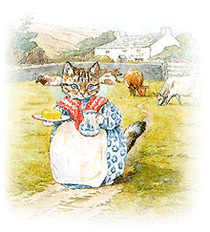09. 2010年8月10日 12:01:16: dpqf4nz9Cs
ニューヨークタイムズの記事を全訳しました。なおこの問題についていろいろな立場があるとは思いますが、訳者としては違和感を覚える記述が記事中に散見されたので、訳注という形で文句を書いてますw 気になる方はスルーしてください。YOKOHAMA, Japan — “The Cove,” an Oscar-winning documentary about dolphin hunting in Japan, would seem to be a natural fit for movie theaters here, but so far the distributor has yet to find a single one that will screen the film. オスカー受賞の日本のイルカ漁のドキュメンタリー The Cove はここ横浜の映画館で上演されて当然であるが、配給会社はいまだ上演できる映画館をひとつも見つけられていない。 Related
Times Topics: Japan
The New York Times
Many of the scenes in “The Cove” were filmed in Taiji.
And if Shuhei Nishimura and his compatriots on Japan’s nationalist fringe have their way, none ever will.
コーヴの撮影はほとんど太地で行われたが。もし西村修平と彼の国粋主義仲間が思惑通り事を運べば、前代未聞のことになるだろう。 In a country that shudders at disharmony and remains wary of the far right’s violent history, the activists’ noisy rallies, online slanders, intimidating phone calls and veiled threats of violence are frightening theaters into canceling showings of “The Cove,” which not only depicts dolphin hunting in an unflattering light but also warns of high levels of mercury in fish, a disturbing disclosure in this seafood-loving nation. 揉め事を嫌い極右の暴力への恐れも生々しいこの国で、彼ら活動家の騒々しい街宣、ネット上での非難、脅迫電話と匿名の威嚇は映画館を怯えさせ、コーヴ上演中止に追い込んでいる。コーヴは嘘偽りのないイルカ漁の実態を伝える(訳注:それはいかがなものか)のみならず、イルカ肉の高濃度水銀についても警告しており、それは海鮮好きの国民にとっては気になる事実であろう。 It is a stark example as well of how public debate on topics deemed delicate here can be easily muffled by a small minority, the most vocal of whom are the country’s estimated 10,000 rightists who espouse hard-line stances in disputes against Tokyo’s neighbors. これはまた、デリケートな話題についての公の論議がいかにたやすく少数者、特に声の大きい一万人ほどの右翼によってかき回されるかを如実に示す一例である。彼ら右翼勢力はまた、東京に住む外国人に対しても激しい強硬論を展開している。 Other areas that have been effectively made taboo by the right wing include Japan’s royal family, rights for ethnic minorities, Tokyo’s occupation of parts of Asia in the last century, the nation’s role in World War II and organized crime groups, many of which have close links with the far right. 右翼によって言論が封殺された他の事例は、皇室論議、少数民族の権利、前世紀における日本のアジア支配、大戦における日本の立場、そして極右自体が密接に関わっている組織犯罪についての議論などである(訳注:無関係な話題で「極右」に対する悪印象を植え付ける、イメージ操作の感を否定できない文章と思われる)。 Groups like Mr. Nishimura’s Society for the Restoration of Sovereignty, which has just a handful of core members, have recently made it their mission to counter international criticism of practices like whaling and dolphin hunting. In countless rallies, the society’s members have argued that the hunts are time-honored Japanese traditions that must be protected from Western condemnation, and “The Cove” is now their No. 1 target. 西村氏の主権回復会(中核メンバーは数人)はこのところ、捕鯨やイルカ量に対する国際的非難に反論することを主な活動としている。数え切れないほどの街宣で、漁は日本古来の伝統であり西洋の迫害から保護しなくてはならない、と主張している。コーヴはいまターゲットナンバーワンである。 “If you have any pride in your nation, do not show this film,” Mr. Nishimura bellowed through his loudspeakers at a protest in front of the Yokohama New Theater, with about 50 protesters with billboards and rising-sun flags in tow. “Will you poison Japan’s soul?” 「祖国に少しでも誇りをもっているなら、この映画を上演するべきではない」横浜ニューシアターの前でラウドスピーカーを通して気勢をあげる西村氏の背後には、50人ほどのプラカードと日章旗を掲げた賛同者が控える「お前たちは日本の魂に毒を盛るつもりか!?」 “The Cove” features scenes, many of them filmed surreptitiously, of dolphin hunts in the village of Taiji, southwest of Tokyo. A group of activists led by Ric O’Barry, who trained dolphins for the television series “Flipper,” witness the violent hunts in a secluded lagoon, where fishermen corral dolphins, select a few to capture alive and use harpoons to stab the rest to death, turning the inlet crimson with their blood. コーヴは東京の西南太地で大部分隠し撮りで撮影されたイルカ漁のシーンを扱っている。テレビシリーズ「フリッパー」のためにイルカのトレイなーを務めたことがあるリック・オバリーに率いられた活動家グループは、人里はなれた岩礁で猟師たちがイルカを囲い込み、一部を生け捕りに、残りを刺殺し、湾がイルカの血で真っ赤に染まる凄惨なイルカ漁を目撃した(訳注:そりゃ漁は凄惨なものですよ、牛肉と同じじゃない)。 The killings, the activists charge, are driven by a lucrative trade in live dolphins for aquariums as well as a local market for dolphin meat, which is contaminated with mercury. 活動家たちが非難しているイルカ殺しは、実入りのよいイルカの水族館への販売や、水銀だらけのイルカ肉を地域の市場に出荷することが目的で行われている。 Commercial whaling has been outlawed worldwide since the mid-1980s, but the ban does not cover smaller marine mammals like dolphins. Japan kills about 13,000 dolphins a year, according to the Fisheries Agency, of which about 1,750 are captured in Taiji. Most of those killed in Taiji’s hunts are bottlenose dolphins, which are not endangered. The movie has raised passions in the United States, too, though of a far different sort. After some covert work by the movie’s producers — timed to coincide with the Oscar ceremonies — investigators raided a sushi restaurant in Santa Monica, Calif., in March and charged its owners with serving endangered Sei whale. After an apology, the restaurant soon closed its doors, apparently in an act of gustatory hara-kiri. 80年代半ば以降、商業捕鯨は全世界で非合法化されているが、イルカなど小型哺乳類は禁に含まれて居ない。日本は一年間に13000のイルカを殺している、と漁業庁(訳注:ですか?)はいい、そのうち1750は太地で捕獲されている。太地で殺されているイルカのほとんどはボトルノーズドルフィンであり、絶滅の危惧はない。映画は合衆国でも別の意味での反響を巻き起こした。オスカーにあわせた映画製作所の秘密裏の仕事のあと、3月に当局はサンタモニカクリフのスシレストランを捜索し、オーナーを絶滅危惧種セイクジラを提供した容疑で告発した。謝罪後、レストランは直ちに閉店したが、これは明らかに一種のハラキリである(訳注:おいw)。 Advocates of free speech here have urged theaters to resist the threats and show the documentary, made by the American filmmaker Louie Psihoyos. Many Japanese are unaware that dolphin hunts take place here, where consumption of dolphin meat is rare, and critics say it is time for a public debate. 言論の自由を主張する人々は、映画館に脅迫に抵抗しアメリカの映画作家ルイ・シホイヨス(訳注:発音不明?)のドキュメンタリーを上演するよう求めている。多くの日本人はイルカ漁の存在を知らないが、それはイルカの肉がほとんど食べられていないからであり、一部の評論家は公の議論を起すべきときだとしている。 A few businesses are resisting the nationalists’ pressure. The Internet service company Niwango plans a free streaming of the film on Friday, though for only 2,000 viewers. 一部には国粋主義者の圧力に抵抗する動きもある。インターネットサービス会社ニワンゴは、わすか2000人限定であるが、金曜日にフィルムの無料ストリーミングを計画している。 But three theaters canceled runs of the film in early June after Mr. Nishimura’s group warned on its Web site that it would stage demonstrations outside two theaters in central Tokyo. Twenty-three others are still mulling whether to show the film. Not one is currently screening it. しかし三つの映画館が6月上旬の西村氏一派のホームページでの、東京中心部の二つの映画館前で街宣抗議を行う、という警告を受けて上演をキャンセルしている。23のほかの映画館はいまだ迷っており、そのどれもが現在(コーヴをを)上演していない。 |

 スパムメールの中から見つけ出すためにメールのタイトルには必ず「阿修羅さんへ」と記述してください。
スパムメールの中から見つけ出すためにメールのタイトルには必ず「阿修羅さんへ」と記述してください。